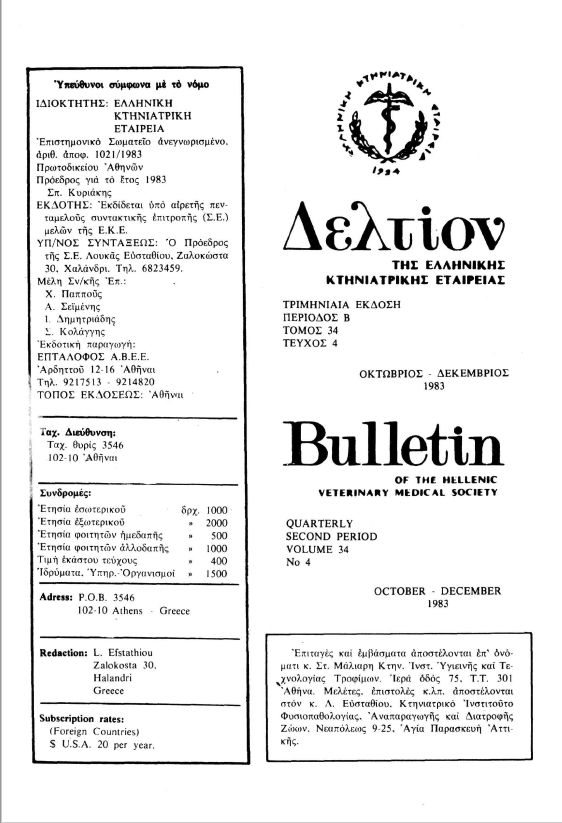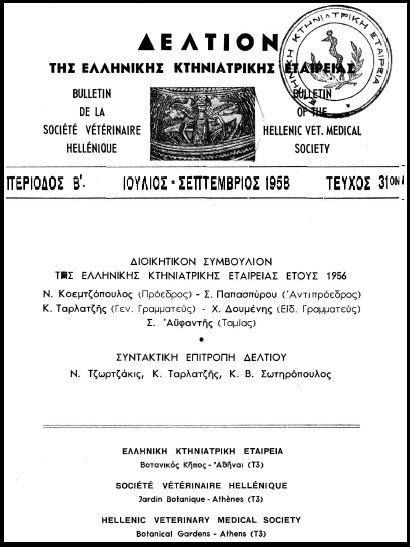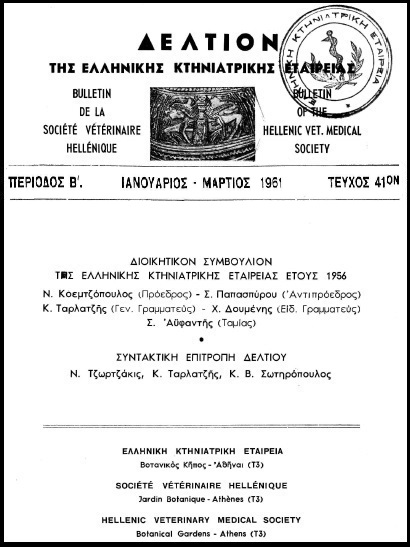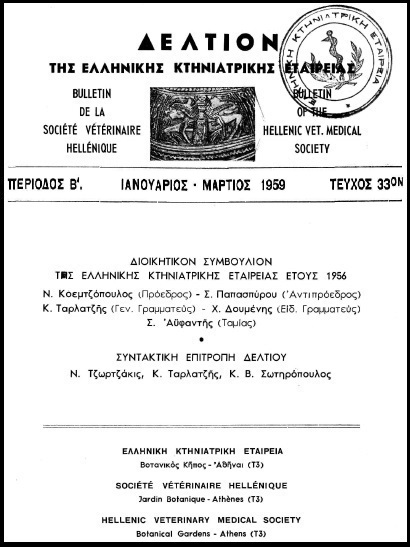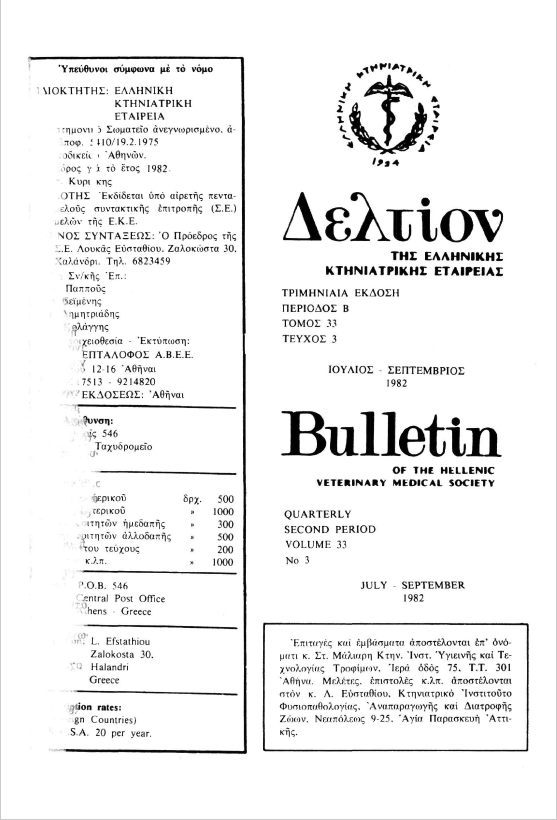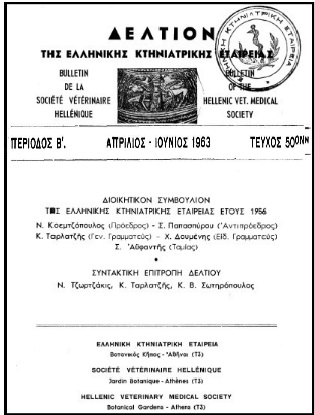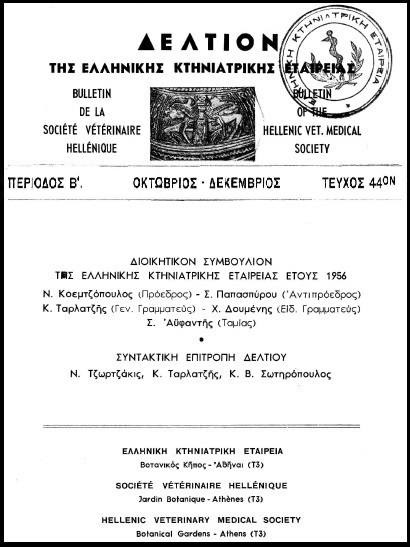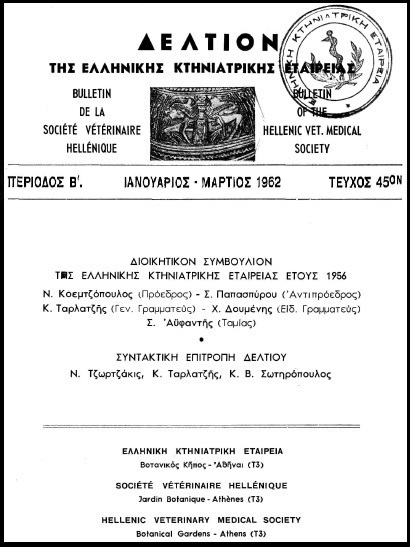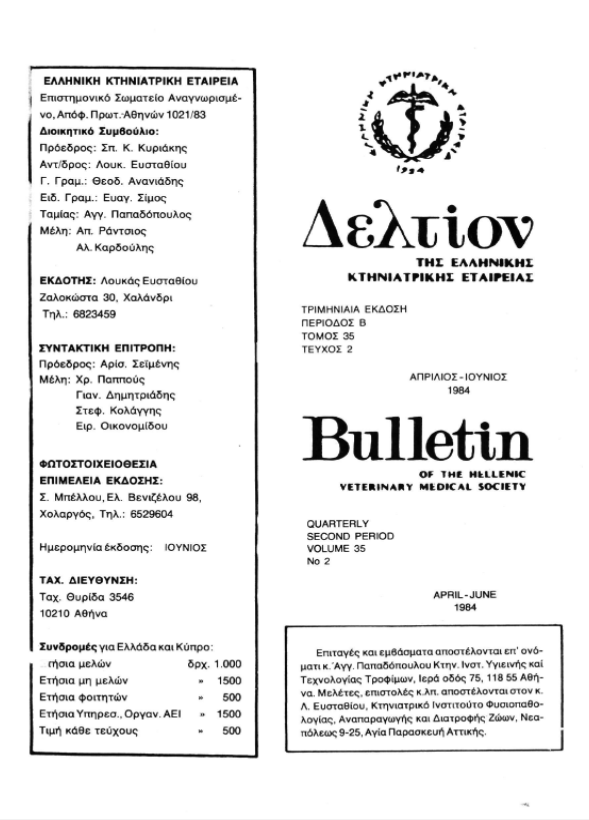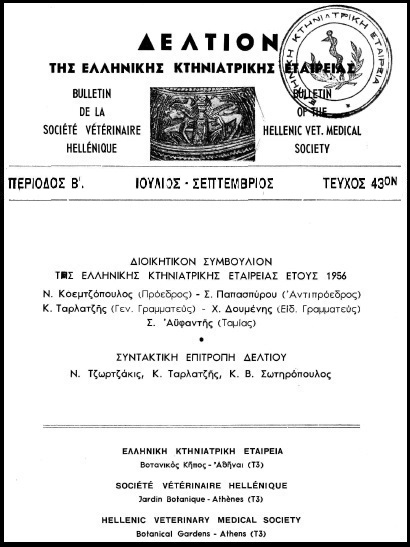Χρόνια λεπτοσπείρωση του χοίρου περιπτώσεις αποβολών σε σύες χοιροστασίων βιομηχανικού τύπου
Аннотация
Στην εργασία αυτή περιγράφεται σε συντομία βιβλιογραφικά η λεπτοσπείρωση του χοίρου και η μέχρι σήμερα ελληνική εμπειρία. Στη συνέχεια αναφέρονται 7 περιστατικά της νόσου αυτής, χρόνιας μορφής, σε διάφορα βιομηχανικού τύπου χοιροστάσια της Ν. Ελλάδας. Η εκδήλωση της λεπτοσπειρώσεως είχε ως συνέπεια μεγάλο ποσοστό αποβολών στις σύες των χοιροστασίων αυτών η και γέννηση θνησιγενών και μουμιοποιημένων εμβρύων. Όλα τα περιστατικά συνέβηκαν κατά τη διάρκεια του 1982 και των 3 πρώτων μηνών του 1983. Η ύπαρξη της λεπτοσπειρώσεως διαπιστώνεται γιά πρώτη φορά στην Ελλάδα, σε σύγχρονες βιομηχανικού τύπου εκμεταλλεύσεις. Τα κρούσματα της νόσου αυτής που είχαν διαπιστωθεί στο παρελθόν αφορούσαν την πρωτόγονη χοιροτροφία των δεκαετιών 1950 και 1960. Επίσης γιά πρώτη φορά έγινε απομόνωση λεπτοσπειρών από διάφορα έμβρυα χοίρων. Ορολογικά διαπιστώθηκε κυρίως η L. pomona και σε μικρό ποσοστό η L. Tarassovi και η L. grippotyphosa. Λόγω των οικονομικών επιπτώσεων της νόσου αυτής στο κόστος παραγωγής του χοιρινού κρέατος και του προβλήματος της δημόσιας υγείας, προτείνονται διάφορα μέτρα γιά τον έλεγχο, πρόληψη, θεραπεία και την προοδευτική εκρίζωση της νόσου αυτής από την χοιροτροφία της Ελλάδας
Article Details
- Как цитировать
-
ΧΟΝΤΟΥ Α., ΚΥΡΙΑΚΗΣ Σ., ΣΙΜΟΣ Ε., ΣΤΟΦΟΡΟΣ Ε., ΞΥΛΟΥΡΗ Ε., & ΠΑΝΝΑΚΟΠΟΥΛΟΥ Λ. (2019). Χρόνια λεπτοσπείρωση του χοίρου περιπτώσεις αποβολών σε σύες χοιροστασίων βιομηχανικού τύπου. Journal of the Hellenic Veterinary Medical Society, 34(4), 318–324. https://doi.org/10.12681/jhvms.21609
- Выпуск
- Том 34 № 4 (1983)
- Раздел
- Articles

Это произведение доступно по лицензии Creative Commons «Attribution-NonCommercial» («Атрибуция — Некоммерческое использование») 4.0 Всемирная.
Authors who publish with this journal agree to the following terms:
· Authors retain copyright and grant the journal right of first publication with the work simultaneously licensed under a Creative Commons Attribution Non-Commercial License that allows others to share the work with an acknowledgement of the work's authorship and initial publication in this journal.
· Authors are able to enter into separate, additional contractual arrangements for the non-exclusive distribution of the journal's published version of the work (e.g. post it to an institutional repository or publish it in a book), with an acknowledgement of its initial publication in this journal.
· Authors are permitted and encouraged to post their work online (preferably in institutional repositories or on their website) prior to and during the submission process, as it can lead to productive exchanges, as well as earlier and greater citation of published work.

